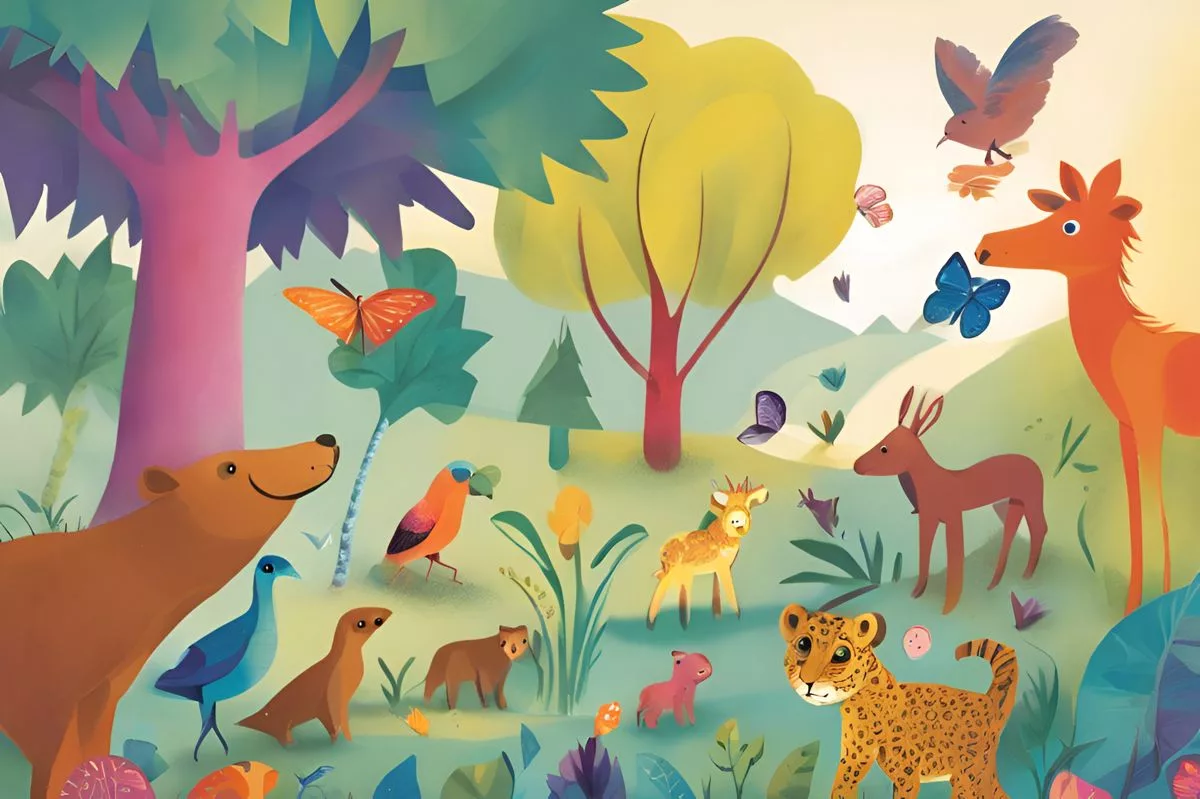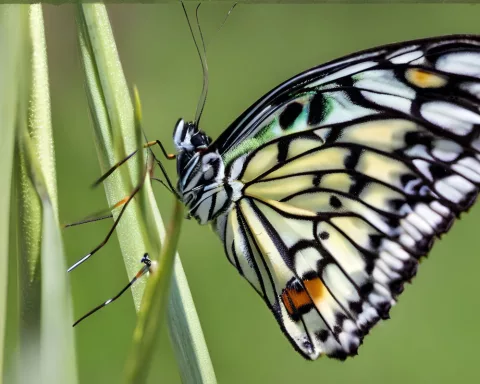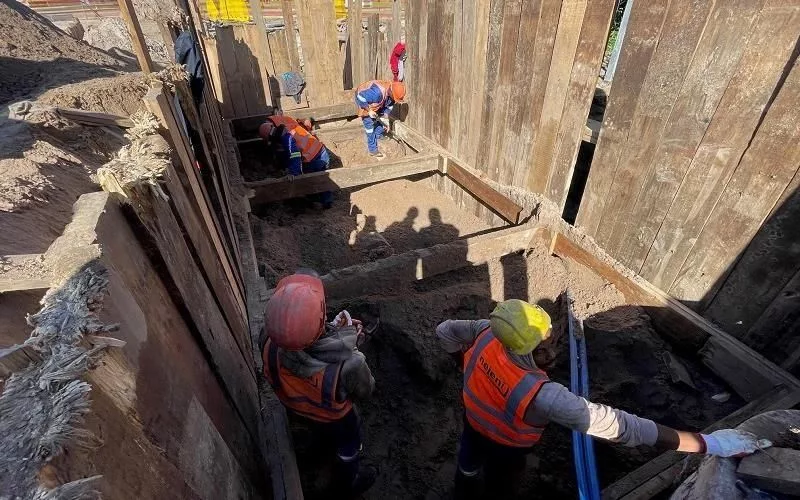The Big Biodiversity Challenge is a competition for students in Grades 6 to 9 to come up with innovative solutions to environmental issues threatening biodiversity. The challenge is a joint effort by several organizations in the Western Cape, aimed at inspiring the next generation of environmental custodians. Students can participate solo or in teams, with the chance to win exciting prizes. The competition provides a unique opportunity for young minds to become part of the solution to environmental issues and take a proactive approach towards ecological responsibility.
Encouraging Young Minds for Ecological Responsibility
The Big Biodiversity Challenge is a concerted effort to shape the next generation of environmental custodians. CapeNature’s CEO explains that the initiative aims to channel the enthusiasm and positivity of youth to promote learning and foster environmental awareness among the young generation. The Challenge invites students to recommend solutions through a scientific, creative arts, or social project. Participants with inventive ideas stand a chance to win appealing prizes.
In response to the urgent environmental issues threatening biodiversity, several organizations are banding together in the Western Cape. CapeNature, alongside the Western Cape Environmental Education Friends (WCEEF), SANBI, Nature Connect, SANParks, and the Two Oceans Aquarium, has issued a fruitful invitation to young learners in Grades 6 to 9 to devise ingenious ways to combat these problems. This groundbreaking project, dubbed the Big Biodiversity Challenge, was unveiled on International Day for Biological Diversity on May 22, under the engaging banner – ‘Be Part of the Plan’.
Encouraging Young Minds for Ecological Responsibility
Far from being a simple contest, the Big Biodiversity Challenge is a concerted effort to shape the next generation of environmental custodians. CapeNature‘s CEO, Dr. Ashley Naidoo, expounds that the initiative aims to channel the enthusiasm and positivity of youth to promote learning and foster environmental awareness among the young generation.
The Challenge invites students to recommend solutions through a scientific, creative arts, or social project. It is conceptualized to spur critical thinking and creativity in addressing issues like habitat destruction, rampant fires, climate change, and irresponsible exploitation of natural resources. The competition is accessible to all schools in the Western Cape, allowing students to take part solo or in teams. Participants with inventive ideas stand a chance to win appealing prizes.
Importance of Early Ecological Engagement and the Potential for Innovation
Suanne Rampou, a representative from the Western Cape Education Department, emphasizes the value of early interaction with children to instill a lifelong reverence and appreciation for nature. She asserts that the competition provides an excellent platform for students to exercise their innovative abilities and formulate solutions that could immensely contribute to preserving biodiversity.
Khuthala Swanepoel, who is the Chairperson for WCEEF and Manager for Sustainable Awareness & Education at the Western Cape Government, voices her excitement with a stirring call to action. As the operational agent of the WCEEF, Swanepoel recognizes the importance of consolidating the varied strengths and resources from all the forum’s members to make a significant collective impact. She is confident that through such cooperative endeavors, the efforts to protect biodiversity can be amplified, and a sustainable path for our planet can be charted.
The Big Biodiversity Challenge: A Unique Opportunity for Young Environmentalists
The Big Biodiversity Challenge provides a unique opportunity for young minds to become part of the solution. It encourages them to adopt the role of environmental protectors, utilize their creative and critical thinking capacities, and devise innovative strategies for conserving our planet’s biodiversity.
In addition to the competition, CapeNature also presents enticing offers for exploring Cape Town and its picturesque environs. For instance, Cape Town Etc is making available a 60-minute cruise for a mere R155 (originally priced at R310), granting an excellent chance to enjoy the city’s natural splendor.
CapeNature’s Commitment to Nurture the Next Generation
The Big Biodiversity Challenge stands as a testament to CapeNature’s dedication to inspire the succeeding generation to take a proactive approach towards ecological issues. The initiative aligns seamlessly with CapeNature’s ethos of fostering environmental consciousness among the younger generation. It goes beyond the boundaries of a competition, embodying a learning experience that helps shape future environmental leaders who are not just conscious of the challenges but are ready and armed with the skills and mentality to confront them boldly.
For individuals ready to embark on this transformative and inspiring journey, further details about the competition are accessible here, or by directing an email to [email protected]
CapeNature, in partnership with its allies, is pioneering the path by showing that unified efforts can generate a substantial ripple effect in protecting biodiversity and ensuring a sustainable future for our planet. This initiative lights the way, signalling a readiness to pass the torch of protecting our planet’s biodiversity to the upcoming generation of environmental custodians.
What is the Big Biodiversity Challenge?
The Big Biodiversity Challenge is a competition for students in Grades 6 to 9 to come up with innovative solutions to environmental issues threatening biodiversity. It is a joint effort by several organizations in the Western Cape aimed at inspiring the next generation of environmental custodians.
Who can participate in the challenge?
The competition is accessible to all schools in the Western Cape, and students in Grades 6 to 9 can participate solo or in teams.
What kind of solutions can participants suggest?
Participants can recommend solutions through a scientific, creative arts, or social project. It is conceptualized to spur critical thinking and creativity in addressing issues like habitat destruction, rampant fires, climate change, and irresponsible exploitation of natural resources.
What prizes can participants win?
Participants with inventive ideas stand a chance to win exciting prizes.
What is the objective of the Big Biodiversity Challenge?
The competition aims to channel the enthusiasm and positivity of youth to promote learning and foster environmental awareness among the younger generation. It encourages young minds to become part of the solution to environmental issues and take a proactive approach towards ecological responsibility.
How does the Big Biodiversity Challenge align with CapeNature’s ethos?
The initiative aligns seamlessly with CapeNature’s ethos of fostering environmental consciousness among the younger generation. CapeNature’s commitment to inspiring the succeeding generation to take a proactive approach towards ecological issues is reflected in the Big Biodiversity Challenge.












